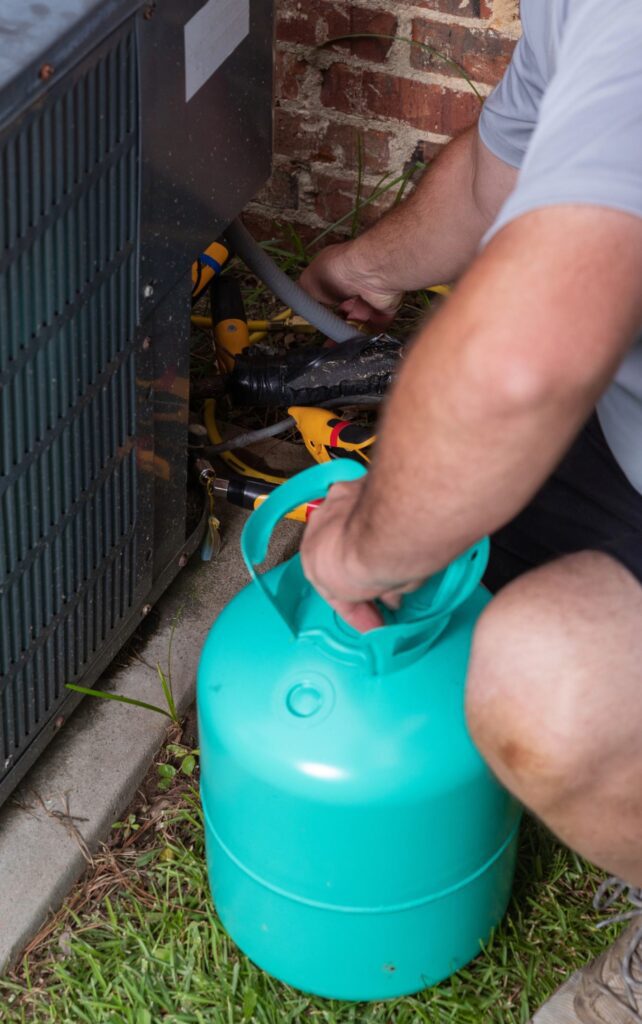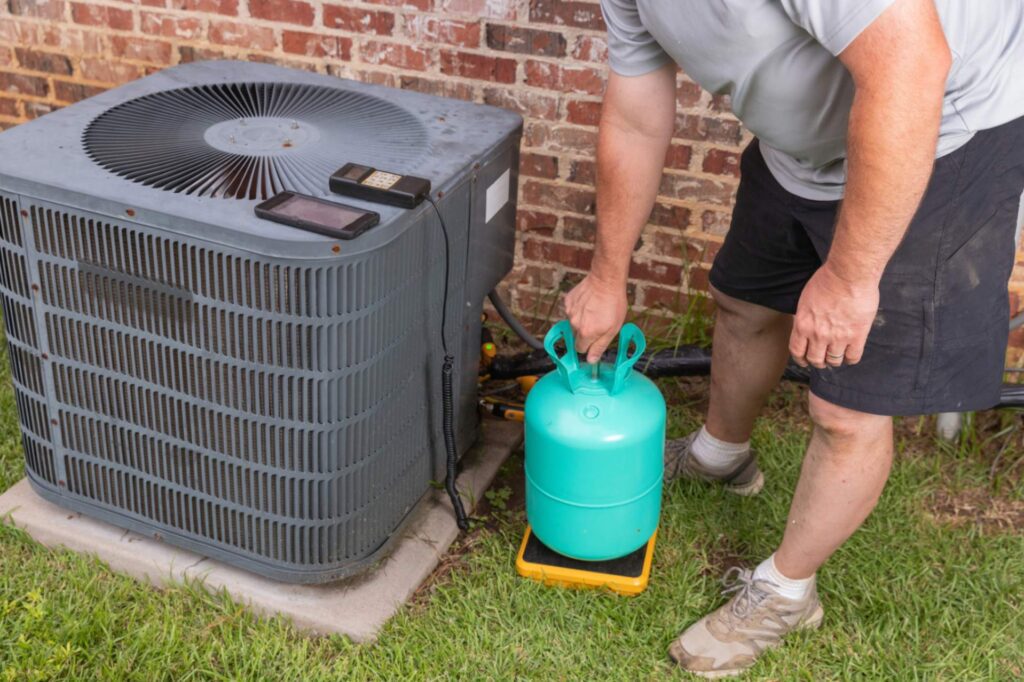Over the past few decades, R-410A refrigerant has long been a staple for homeowners anywhere and everywhere. As regulations evolve and the 2025 phase-out looms, understanding what this means for cooling systems in Loveland, Ohio (and homeowners everywhere) is essential.
One thing to note is that HVAC refrigerants are fundamental because they cool and dehumidify air in systems. Now, keep in mind as well that for years, this refrigerant has been a staple choice, but recent regulatory updates raise questions about its future usage and possible phase-out. In this article by Loveland Heating & Air, we dive into why R-410A might be phased out, its impact on the HVAC industry, and the alternatives leading the charge.

1. Understanding R-410A
In order for you to better understand the potential phase-out, one should first be familiar with exactly what R-410A is. It’s a hydrofluorocarbon (HFC) extensively used in both residential and commercial AC systems. Introduced as a friendlier alternative to R-22, which harmed the ozone layer, it has quickly gained favor due to its cooling efficiency and environmentally safer profile compared to chlorofluorocarbons (CFCs) and hydrochlorofluorocarbons (HCFCs). Despite its benefits, R-410A’s high global warming potential (GWP) raises environmental concerns.
2. R-410A and the Push for Sustainable Alternatives
The move to phase out R-410A aligns with global efforts to cut greenhouse gases and combat climate change. The Kigali Amendment to the Montreal Protocol is an international treaty pushing for an 80% reduction in HFCs like R-410A over three decades, prompting a shift to low-GWP refrigerants. Similarly, the U.S. Environmental Protection Agency (EPA), via the American Innovation and Manufacturing (AIM) Act, is phasing down HFCs, urging the industry towards sustainable practices.
3. What’s Next for R-410A by 2025?
Timelines for reducing HFCs such as R-410A differ by country, driven by local laws. Around 2025, changes are anticipated under the Kigali Amendment and the EPA’s AIM Act. A global phase-out by 2025 might not happen, but tighter restrictions on new R-410A equipment are likely, prompting manufacturers to innovate with new refrigerant technologies.
4. Impact on HVAC
The potential move away from R-410A holds significant consequences for HVAC industry players:
- New Refrigerant Adoption: Manufacturers and providers must transition to eco-friendlier options like R-32, R-454B (Opteon™ XL41), and R-466A (Solstice® N41), noted for their lower GWP. Professionals must familiarize themselves with these solutions to meet customer needs effectively.
- Education and Certification: New refrigerants necessitate updated training and certification for HVAC technicians, ensuring safety and regulatory compliance.
- System Upgrades: Existing R-410A systems might be retrofitted to use newer refrigerants, although this can be costly and complex. Often, replacing with new systems tailored for low-GWP refrigerants could be more practical.
- Cost and Market Adjustments: New technology shifts could affect HVAC system pricing and availability. Initial costs and limited supply may impact consumers, though prices should stabilize as production scales up.
5. Preparing for the Transition and R-410A’s Phase-out
As the HVAC industry evolves, stakeholders must stay informed and proactive. Consider the following steps:
- Stay informed on regulatory changes and refrigerant phase-down timelines, understanding international and domestic regulations.
- Choose an HVAC company that will inform you and keep you up to date on the transition and current regulations.
- Evaluate options for more environmentally conscious solutions in both businesses and homes.

Make sure to leave refrigerant recharges (refills) and HVAC maintenance to the certified professionals at Loveland Heating & Air. We’ll help you navigate the R-410A phase-out and make sure your system stays reliable. Contact us today for fast, professional service for all your AC maintenance needs.
Call Loveland Heating & Air today at (513) 216-5913, or schedule an appointment online now by clicking here!
More HVAC Refrigerant Information
Our goal is always to keep you informed as best as we can. Learn more about the role of HVAC refrigerants and their role here!





